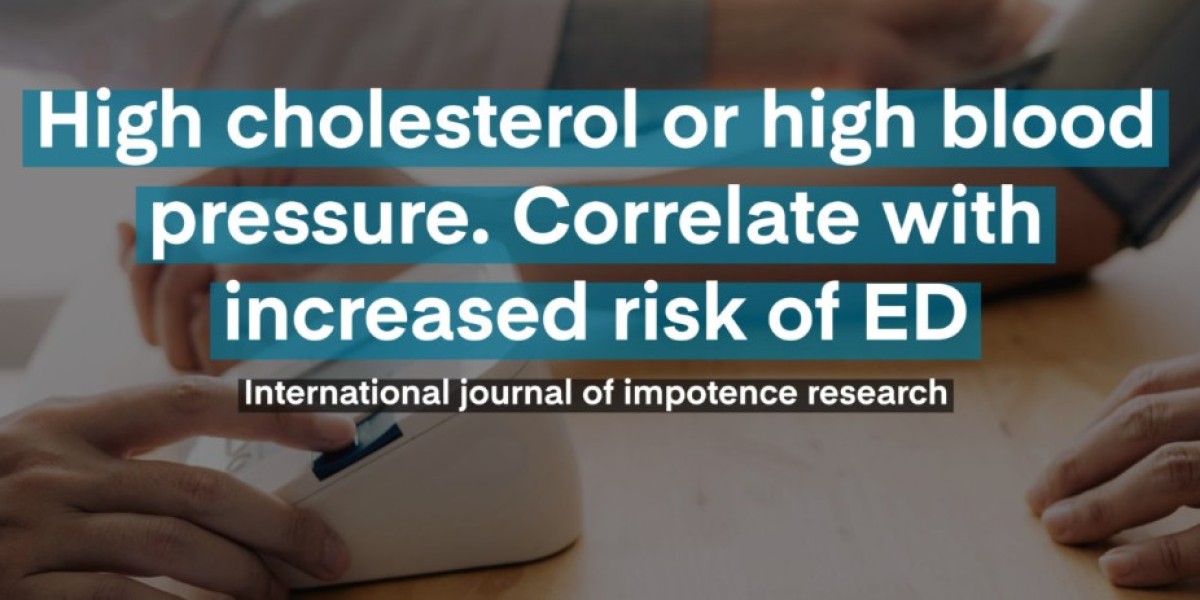In today's fast-paced world, maintaining good health has become a priority for many. Conditions like high cholesterol and erectile dysfunction (ED) are two concerns that often garner attention due to their impact on overall well-being. But did you know that these seemingly unrelated issues might actually be connected?
Understanding High Cholesterol: High cholesterol, also known as hypercholesterolemia, occurs when there's an excessive amount of cholesterol in the blood. Cholesterol is a waxy substance that is crucial for various bodily functions, including the production of hormones and cell membranes. However, an elevated level of LDL cholesterol (often referred to as "bad cholesterol") can lead to the buildup of fatty deposits in the arteries, restricting blood flow.
Exploring Erectile Dysfunction: Erectile dysfunction is a common condition that affects men's ability to achieve and maintain erections. It's often attributed to psychological factors, such as stress and anxiety, but there's a growing body of research suggesting that physiological factors play a significant role as well. One such factor is impaired blood flow.
The Vascular Connection: The link between high cholesterol and erectile dysfunction lies in their impact on blood vessels. Healthy blood flow is essential for achieving and sustaining an erection. However, when cholesterol accumulates in the arteries, a condition known as atherosclerosis can occur. This narrowing of the arteries can restrict blood flow to various parts of the body, including the genital area, which can lead to difficulties in achieving and maintaining an erection.
Cholesterol and Endothelial Function: The endothelium is the inner lining of blood vessels. It plays a crucial role in regulating blood flow, and its health is closely tied to the ability to achieve an erection. High cholesterol levels can damage the endothelium, impairing its ability to produce nitric oxide, a molecule that helps relax blood vessels and promote blood flow. Without sufficient nitric oxide production, achieving an erection becomes challenging.
Addressing the Issue: The connection between high cholesterol and erectile dysfunction underscores the importance of addressing both concerns. Managing cholesterol levels through a combination of lifestyle changes and, if necessary, medication can help reduce the risk of atherosclerosis and improve blood flow throughout the body, including the genital area.
Lifestyle Changes:
- Healthy Diet: Adopting a diet rich in fruits, vegetables, whole grains, and lean proteins while minimizing saturated and trans fats can help lower cholesterol levels.
- Regular Exercise: Engaging in regular physical activity can improve cardiovascular health and aid in weight management.
- Smoking Cessation: Smoking damages blood vessels and worsens atherosclerosis, so quitting smoking is essential.
- Limiting Alcohol: Excessive alcohol consumption can contribute to high cholesterol levels and other health issues.
Medical Interventions: In cases where lifestyle changes aren't enough, healthcare professionals might recommend medications to help lower cholesterol levels. Statins are commonly prescribed to manage high cholesterol and reduce the risk of cardiovascular events. These medications can potentially have positive effects on both cholesterol levels and erectile function.
Conclusion: The surprising link between high cholesterol and erectile dysfunction emphasizes the importance of holistic health management. Understanding how one condition can influence the other underscores the need to prioritize cardiovascular health through lifestyle changes, medical interventions, and regular check-ups. By addressing high cholesterol, individuals can not only reduce their risk of heart-related issues but also improve their overall quality of life by maintaining healthy erectile function. Remember, a healthier lifestyle today can lead to a more fulfilling and satisfying tomorrow.



